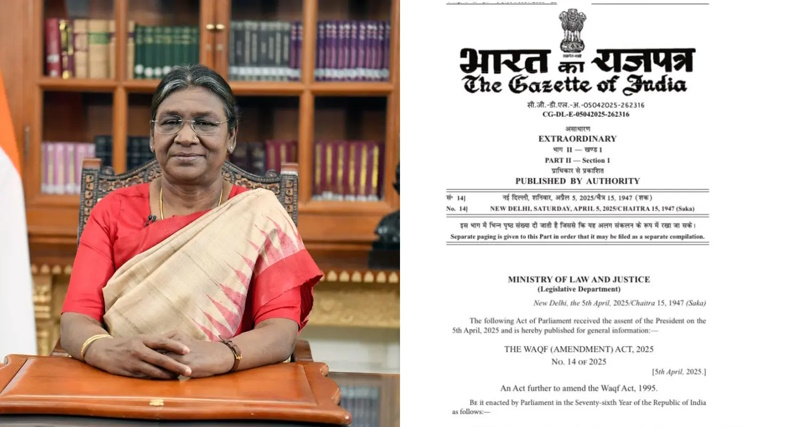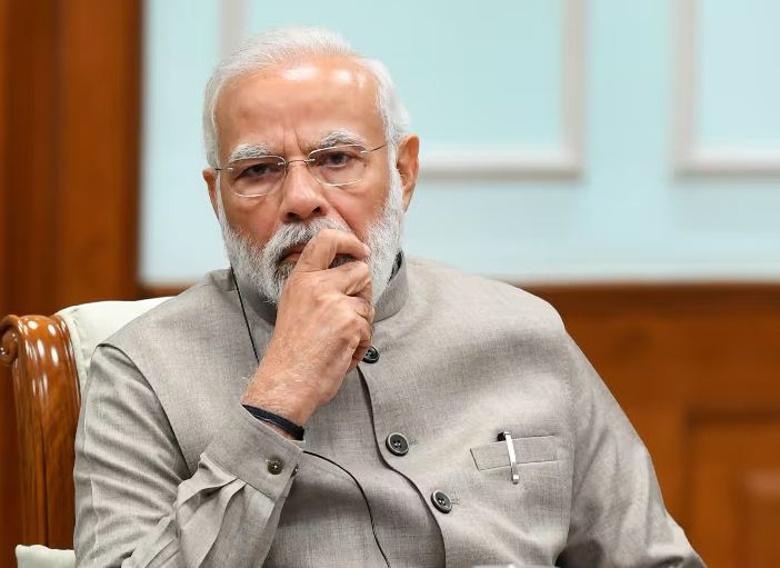 New Delhi: The Waqf Amendment Bill 2025 has now taken the form of law. President Draupadi Murmu gave her approval to this bill late on Saturday night, making it the Waqf (Amendment) Act, 2025. Many leaders and Muslim organizations have already knocked the doors of the Supreme Court against the Waqf Bill. Protests have intensified in many parts of the country against the bill.
New Delhi: The Waqf Amendment Bill 2025 has now taken the form of law. President Draupadi Murmu gave her approval to this bill late on Saturday night, making it the Waqf (Amendment) Act, 2025. Many leaders and Muslim organizations have already knocked the doors of the Supreme Court against the Waqf Bill. Protests have intensified in many parts of the country against the bill.
Before the President’s approval, the bill was passed after a marathon debate in both the Houses of Parliament. It was passed by 128-95 votes after a 13-hour debate in the Rajya Sabha, while it was approved by 288-232 votes after a 12-hour long discussion in the Lok Sabha. On the other hand, protests have started in different parts of the country against the Waqf Amendment Bill. Intense protests are being seen in Tamil Nadu and West Bengal. In Delhi too, Muslim organizations took to the streets and raised their voice against the law. The deployment of police forces has been increased for security reasons. The administration has issued notices to 24 people who protested by wearing black badges in Muzaffarnagar district of Uttar Pradesh. At the same time, the All India Muslim Personal Law Board has announced a nationwide movement and legal action against this law.
Opposition parties have called this law unconstitutional and a violation of minority rights. Congress, AIMIM and Aam Aadmi Party leaders have filed petitions in the Supreme Court. Congress MP Mohammad Javed, AIMIM MP Asaduddin Owaisi and AAP MLAs say that this law discriminates against Muslims and violates their fundamental rights.
The government says that this amendment was necessary for more transparent and effective management of Waqf properties. However, critics allege that the government is making undue interference in the affairs of religious minorities through this law. Now all eyes are on the Supreme Court hearing and possible nationwide protests.




